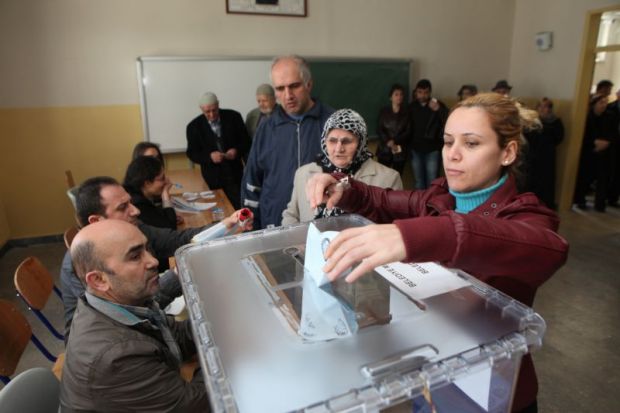Turkish scholars have said major changes will be needed to restore the country’s higher education system after two decades of deteriorating working conditions, freedoms and institutional autonomy under the presidency of Recep Tayyip Erdoğan.
With the results of the presidential and parliamentary elections – held on 14 May – still unclear, whoever is victorious has a daunting task as, even before February’s devastating earthquake, Turkey has been stricken by relentless economic inflation and the tensions of an ever more insecure region.
Academics and universities have come under intense political pressure from an increasingly authoritarian Mr Erdoğan, particularly those critical of the state or seen to be sympathetic to citizens in the country’s restive Kurdish region and the president’s sometime political rival, Fethullah Gulen.
In the week before the election, polls showed a slight lead for an opposition bloc led by Kemal Kılıçdaroğlu, leader of the Republican People’s Party and a former civil servant once named “Bureaucrat of the Year”.
While his big tent coalition has yet to hammer out the details of its higher education policy, it has caught the attention of Turkish academics, including those in the global diaspora, some of whom have vowed to return should the opposition win. A video featuring expat alumni from Istanbul’s embattled Boğaziçi University, in which they commit to returning to Turkey, was retweeted by Mr Kılıçdaroğlu, who urged them to do so and said “this country needs you. Your dreams are my goal.”
But while the bookish Mr Kılıçdaroğlu might be a welcome change for many, Turkish scholars contacted by Times Higher Education said much deeper reforms were needed to get higher education back on track.
Zeynep Gambetti, a retired faculty member at Boğaziçi, said top-down control of universities was Turkey’s biggest problem. She said the presidential power to appoint rectors, which Mr Erdoğan gained in 2018, needed to be reversed.
The Council of Higher Education, which was established by the military junta in 1982, should also be abolished, she said, echoing the position taken by Mr Kılıçdaroğlu in 2018, when he described the council as a “coup institution”.
“An intercollegiate board and science academies would be called upon to draft a new higher education law that ensures merit-based employment, freedom of research and teaching, as well as transparent and participatory governance structures for universities,” she said.
Taner Bilgiç, professor in industrial engineering at Boğaziçi, said the wave of universities created under Mr Erdoğan had struggled to recruit because of the brain drain that has accompanied his rule, creating a severe shortage of academic staff and punishing workloads for those who stayed put.
“These universities still need faculty members to develop and establish their academic traditions. [The] return of expat academics to universities across the country might have a significant effect,” he said.
Elif Balın, an associate professor at San Francisco State University, said the university sector needed to be consolidated, particularly those institutions “where people without even master’s degrees teach and advise students”. But, she continued, more fundamental and cultural changes were required.
“Whenever I publish in Turkey, the editors ask me to ‘delete’ implications from the discussion of systemic, especially governmental, practices, even though they are directly linked to the research results,” Professor Balın said.
“I want to go back to a Turkey where parks like Gezi are not forbidden and true diversity of opinions is not suppressed,” she added, referring to protests in 2013 around an Istanbul park, which grew to accommodate deeper discontent about threats to the country’s secular foundations, established 100 years ago.
Professor Balın said she would wait to see if the next government made changes before considering her own return to Turkey, but she stressed that improvements should benefit all academics, not just returnees.
Register to continue
Why register?
- Registration is free and only takes a moment
- Once registered, you can read 3 articles a month
- Sign up for our newsletter
Subscribe
Or subscribe for unlimited access to:
- Unlimited access to news, views, insights & reviews
- Digital editions
- Digital access to THE’s university and college rankings analysis
Already registered or a current subscriber? Login








